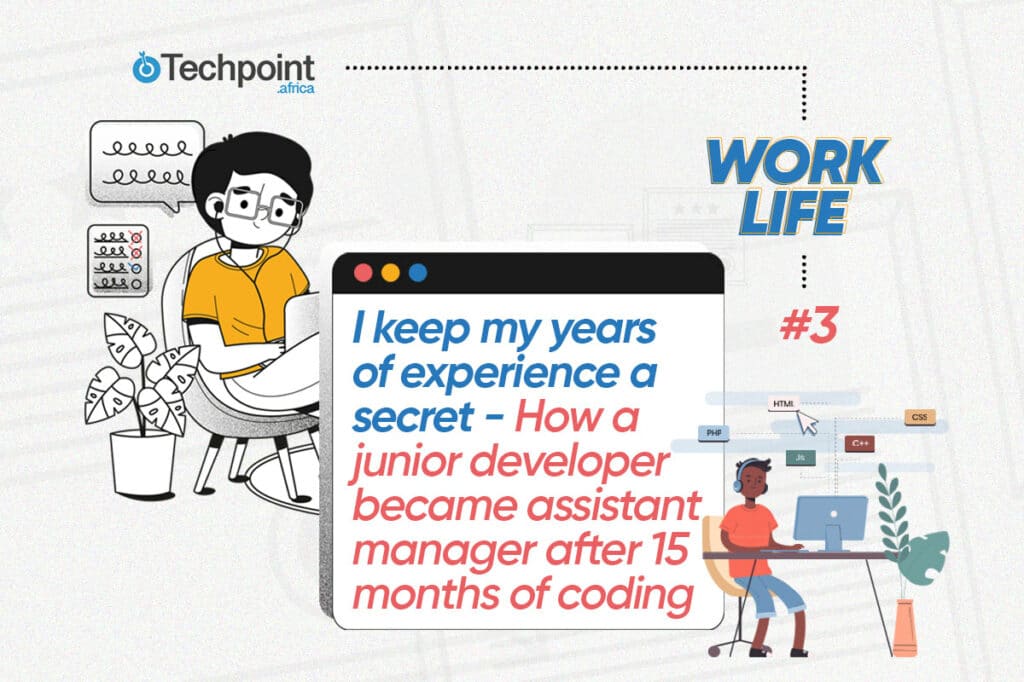Konnichiwa,
Victoria from Techpoint here,
Here’s what I’ve got for you today:
- Ghana licenses 51 cybersecurity industry players
- How a junior developer became assistant manager in 15 months
- South Africa to monitor social media “finfluencers”
Ghana licenses 51 cybersecurity industry players

Ghana’s Cyber Security Authority (CSA) has granted licences and accreditation to 51 cybersecurity industry players for the first time.
These players include Cybersecurity Service Providers (CSPs) like Virtual Infosec Africa, e-Crime Bureau, and CWG Ghana; Cybersecurity Establishments (CEs) such as Absa Bank, Access Bank, Fidelity Bank, and Guarantee Trust Bank; and Cybersecurity Professionals (CPs) including Kester Quist-Aphetsi, Tornyelli Tetteh, Jeannette Quayson, Olivia Jones, and Ebenezer N. Nakoja.
This move comes as Ghana faces over 4 million data breaches this year, ranking ninth in Africa and 92nd globally for data breaches, with 12 incidents per 100 people, according to a report from VPN firm Surf Shark.
The CSA called this a historic milestone, making Ghana the first African country and the second worldwide after Singapore to have a comprehensive regulatory framework for CSPs, CEs, and CPs.
Following this, the CSA aims to license more providers and ensure strict compliance, with penalties for those who default.
Albert Antwi-Boasiako, the Director-General of the CSA, warned that CSPs, CEs, and CPs offering cybersecurity services without a license are violating the Cybersecurity Act, 2020.
He stressed that violators would face sanctions, including criminal prosecutions and penalties.
He also urged those in the process of getting licensed to meet all requirements and mentioned that the CSA is working with the Public Procurement Authority to ensure compliance with the guidelines.
How a junior developer became assistant manager in 15 months

Looking for a job can feel like you need to know someone on the inside. These days, it often seems like getting hired is all about referrals. But sometimes, applying the old-fashioned way works too! Meet Paul, who has a different story to share.
He got laid off when the startup he was interning for shut down. With nothing to lose, he applied to over forty jobs. One morning, he got an email from his current company, and that’s where it all began.
The HR and HOD were incredibly welcoming right from the start. Paul felt good vibes during his interview, especially with the HR’s smile hinting that he’d nailed it.
He went through six interview stages, from HR to meeting the smart MD. A major issue came up: He didn’t have a degree, and the MD, who values education, was concerned.
Paul explained that he’d been independent for years, focusing on his skills, and promised to enroll in the university if hired. Nervous, he awaited the outcome and soon received an email to proceed to the next stage with the IT consultant.
Despite the degree issue, the IT consultant was more focused on Paul’s skills. To prove himself, he asked for a task, brought his PC the next day, got onboarded on the company’s codebase, and showcased his worth.
But what happened next? You know the drill; check out Oluwanifemi’s latest to find out.
South Africa to monitor social media “finfluencers”

South Africa’s Financial Sector Conduct Authority (FSCA) plans to keep a close eye on financial influencers, or “finfluencers,” on social media to protect consumers from potential scams and misinformation.
In their annual regulatory report, the FSCA noted that while some finfluencers have been helpful for financial literacy and market participation, there are worries about those spreading false info and scams.
The FSCA is particularly concerned about shady high-yield investment schemes on TikTok, often pushed by celebrities. They advised people to get financial advice from authorised professionals instead of social media influencers.
Another big worry for the FSCA is deepfake scams. These scams use AI to create convincing fake content of public figures promoting fraudulent schemes, making it harder for people to spot the fakes.
Fraudsters are also pretending to be legitimate financial service providers and even the FSCA itself, using sophisticated methods to trick people. The FSCA advises verifying any trading or investment services through their office to avoid getting scammed.
Scammers are using social media platforms like Telegram and WhatsApp to lure victims with promises of unrealistic returns and fake positive reviews. They often use mule accounts at banks and crypto exchanges to avoid getting caught.
What’s more, the FSCA stressed its commitment to protecting financial customers from harmful practices and is constantly updating its enforcement methods to keep up with the increasing sophistication of digital fraudsters.
In case you missed it
- What’s happening to the crypto bull run?
- “It’s not a zero-sum game.” — TransferGo’s CEO on the future of remittances in Africa
What I’m watching
- Mental health and resilience – the secrets of inner strength | DW Documentary
Opportunities
- Ventures Platform has over 100 job openings across its portfolio companies. Apply here.
- Bubusplug is organising a one-day hybrid event for jobseekers in collaboration with the Young African Leaders Initiative(YALI) Lagos Network July 27, 2024. Apply here.
Have a fun weekend!
Victoria Fakiya for Techpoint Africa.









